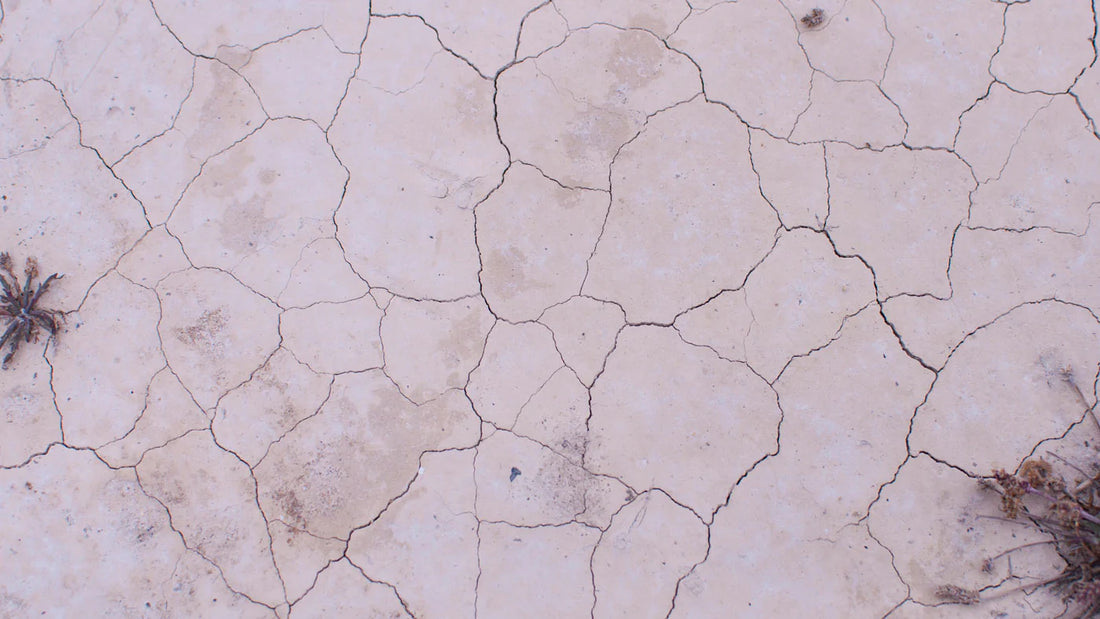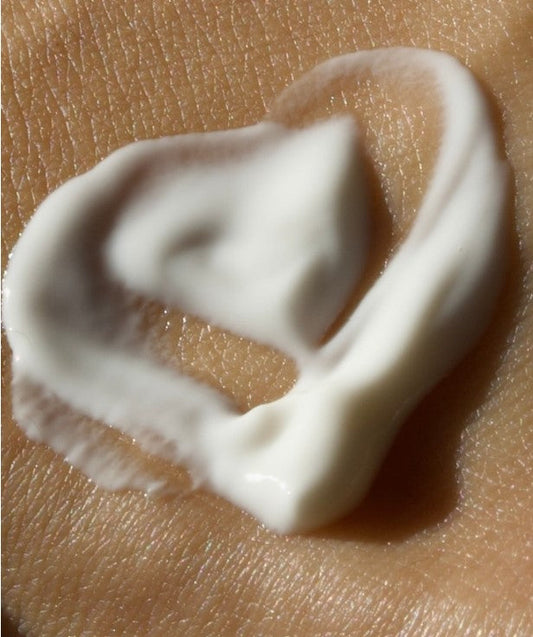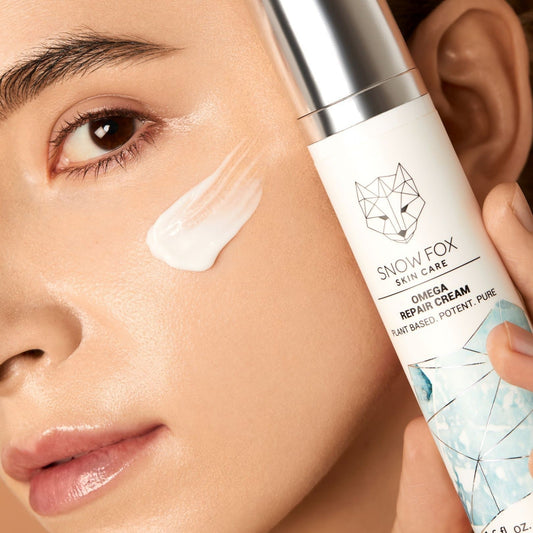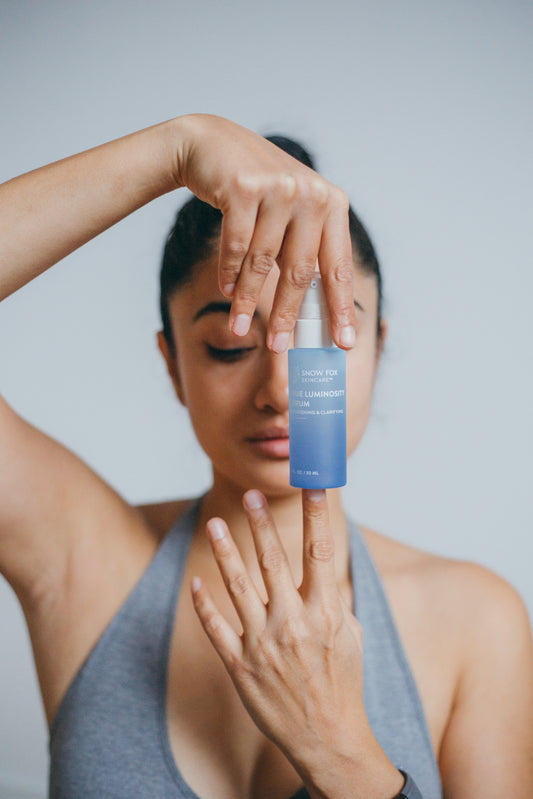Dry Skin Is A Major Category
Dry skin is the bane of many communities worldwide. In the US alone, it is estimated that around 70% of the population experiences some degree of dry skin.*
It can come in the range of simply feeling “tight” around the face to peeling, atopic dermatitis, redness and highly visible skin conditions. So you can imagine, that “dry skin” is a major category for the skincare and beauty industry.

Photo credit: @ricardografia
Different Types Of Dry Skin
Surprisingly, while dermatologists would agree that there are different types of dry skin, the beauty world still generalizes the category as a whole with little information as to what type of hydration is better suited to what type of dry skin concern. It can get extremely technical, but let’s start with the basics.
Most experts would agree that there is a difference between DRY or DEHYDRATED skin. This is based on whether the skin is dry due to an inability to retain moisture (transepidermal water loss) or dry due to a lack of water in the skin.
How Can I Tell Whether My Skin Is Dry Or Dehydrated?
Dry skin is generally identified by skin that is chronically dry - meaning that there is a constant feeling of tightness, stinging when moisturizers are applied and it starts feeling “dry” again very quickly.
Dehydrated skin is different in that skin generally feels normal, however some tightness is experienced immediately after washing with distinctly dry patches in certain areas on the face.
A common root cause of dry skin is ageing, as skin cells lose their ability to retain moisture regardless of how much topical moisture is applied. Weakened skin barriers cannot retain moisture as well as healthy barriers - so those who have over exfoliated in the past may find themselves with chronically dry skin prematurely (under 35 yrs of age).
Climate is also a major factor as drier climates can impact even normally hydrated skin.

Photo credit: Karolina Grabowska
Combination skin types also tend to be dehydrated as the T zone overproduces oil to “fix” itself, but dry patches remain.
Oily skin types can also be dehydrated, as excess oil production is a defense mechanism of over dehydrated skin. Overly clarifying or harsh mattifying formulas may make it worse, so it is important for oily or combo skin types to maintain hydration.

![]() Photo credit: Vincent Botta
Photo credit: Vincent Botta
What Is The Best Type Of Hydration For Each Skin Type?
For Dry Skin - Occlusive moisturizers help seal in the moisture by acting like an extra skin barrier. Popular natural occlusives include oils, squalene and shea butter. Synthetic occlusives are also commonly found in skincare, such as petroleum-based oil derivatives, silicone or mineral oil.
Omega Repair Cream from Snow Fox Skincare
While Snow Fox formulas prefer natural occlusives in order to minimize the risk of clogging and sensitivity, not all synthetic occlusives are bad; some well formulated forms of dimethicone can help prime skin texture and seal in extra moisture.
For Dry Skin types, Snow Fox’s Herbal Youth Oil and Omega Repair Cream are powerfully effective occlusive moisturizers as each one is packed with skin barrier repair ingredients as well as multiple nutrient rich plant oils.
Cucumber Recovery Serum from Snow Fox Skincare
For Dehydrated Skin - Hydrators that don’t have an occlusive effect include humectants such as Hyaluronic Acid, glycerin, aloe vera and rose water. These work by attracting water into skin. It’s no coincidence that Snow Fox’s Cucumber Recovery Tonic and Cucumber Recovery Serum contains ALL of these hydrators, as the range was specifically formulated for Combo and Oily Skin types. For skin types that are at risk of easily clogged pores, hydrators offer a boost of hydration without making the user nervous about a nasty break out.
The biggest difference between Dehydrated and Dry Skin is that the latter usually struggles with weakened barriers while the former does not, which is why an overuse of occlusives may lead to clogged pores.
Dry skin types benefit from using both Humectant Hydrators as well as Occlusive Moisturizers as a two part hydration process to deliver water to the skin as well as retain it.

Photo credit: Silas Bausch
Why Can’t I Just Use Water?
Water evaporates very quickly and in fact, can cause dryness if skin is over washed. Hyaluronic Acid can also cause dryness if it is not formulated properly, as the molecule itself does NOT create moisture, it works by attracting up to 1000 times its own weight in water. It binds to moisture. This means if it isn’t paired properly with other moisturizing agents, it can have a reverse effect in dry climates - the molecules may draw moisture from within the skin instead of the intended effect.
Always check the ingredients list in your Hyaluronic Acid serums to ensure it's packed with quality moisturizing agents and other ingredients that will help seal in or maintain hydration.








